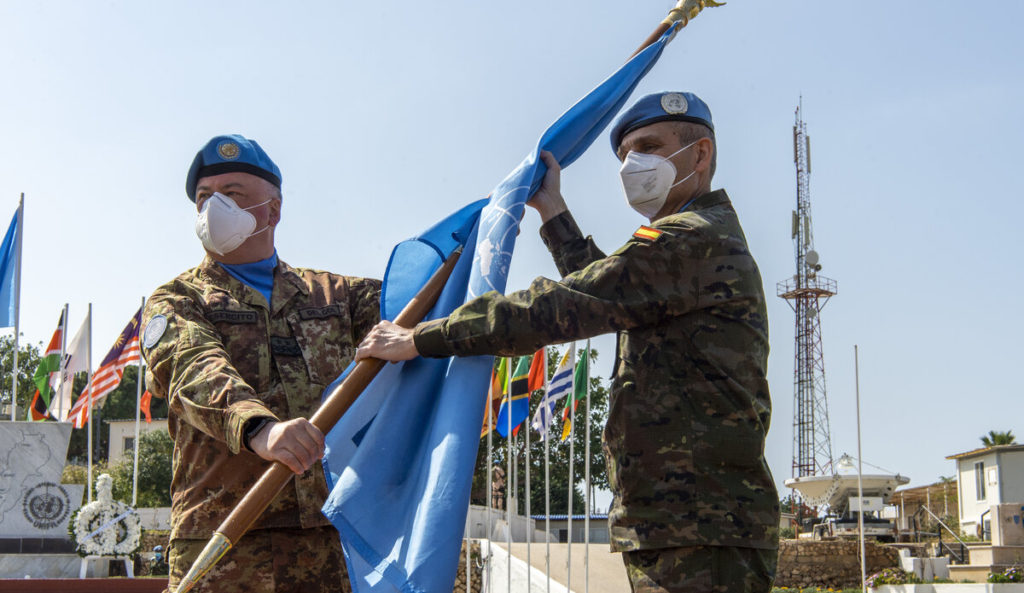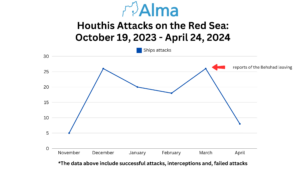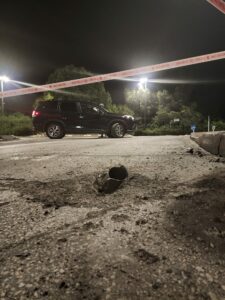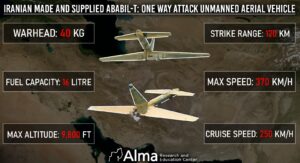“UNIFIL has become part of the furniture”[1]
With the transfer of command over the United Nations Interim Force In Lebanon (UNIFIL) from MG Stefano Del Col (Italy) to MG Major General Aroldo Lázaro Saenz (Spain) this week (28 February 2022) it seems an opportune time to highlight the unique contribution of the mission while discarding past conceptual baggage.
In a time of immense flux with the advent of largescale conflict in Europe, due to President Putin’s decision to invade Ukraine, and the emerging trends in the operational environment in south Lebanon, it seems critical to focus on effective UNIFIL deliverables while streamlining the force and releasing urgently required global resources (especially funding) to other emerging global hotspots. The changes at the operational level impacting UNIFIL effectiveness include:
- Growing intimidation and threat to UNIFIL force protection concurrently with growing limitations on UNIFIL’s freedom of movement or ability to effectively monitor southern Lebanon.
- Lebanese Hizballah’s (LH) growing abrasiveness on the Blue Line (BL)[2] including the routine deployment of light infantry assault troops (called RADWAN)[3].
- Israel’s decision to continue to invest in a Defensive Engineering project along the BL focused on preventing LH land assaults. A project which is basically physically defining the boundary between Israel and Lebanon negating an urgent need for BL marking.
In addition, developing strategic shapers which could potentially impact the region include the upcoming Lebanese presidential elections (15 May); possible progress on demarcating the maritime border between Israel and Lebanon, the ongoing competition over influence in the Levant (including Israel’s “Campaign Between Wars” against Iran and LH precision munitions) and possible fallout from the events in Europe.
To the incoming Force Commander and Head of Mission (UNIFIL FC & HoM), we modestly suggest seizing the moment by leading a bold, creative and proactive approach to lever UNIFIL’s unique contribution. During its 40 years of “temporary” operational service, its effective toolkit in supporting regional stability includes three main applications: Routine Deconfliction support; Focused Blue Line (BL) Preventive Presence, and De-escalation assistance.
In view of UNIFIL’s large and costly footprint of over 10,000 military personnel (many distanced from the BL and having limited tactical impact on BL stability), UNIFIL’s degraded freedom of movement due to growing local Lebanese resistance to patrol activity (in correlation with growing LH military infrastructure in the south) and what appears to be an unproductive corporate vector with Blue Line barrel marking (which only serves to enable LH attack lines into Israel) it is time to go SLIM. Downsize preemptively while energizing the forces’ thrice-full comparative advantage in effective communication and focused presence. Taking a feather out of general Slim’s cap,
“When you cannot make up your mind which of two evenly balanced courses of action you should take, choose the bolder”[4].
UNIFIL way ahead: Enhance utility in sustaining stability through Effective Communication and Focused Presence
UNIFIL was established by the UN Security Council in March 1978 due in large to United States diplomatic pressure, following an IDF incursion into Southern Lebanon to degrade and disrupt Palestinian offensive capabilities (Operation LITANI)[5]. This is in the wake of the continued inability of the government of Lebanon to stabilize the security situation in South Lebanon, raising threats to northern Israel and as a direct result of a deadly Palestinian terror attack by FATAH activists against civilians in central Israel (known as the Coastal Road massacre). For over 40 years the lengthiest temporary UN force has served in South Lebanon at the behest of the government of Lebanon during which time the mission has unfortunately lost 324 of its members, grown in size and in mission, and yet continues to lag in operational effectiveness as various UN documents allude to[6].
The initial mission mandate (UNSCR 425-426, 1978) was focused on confirming “the withdrawal of Israeli forces” and included in addition far-sighted regional and global objectives, such as “restoring international peace and security and assisting the Government of Lebanon in ensuring the return of its effective authority in the area…”[7]. Israeli withdrawal was successful (due to American pressure – not because of UNIFIL) and the next 28 years (1978-2006) were difficult and costly for the force with the shift from the Palestinian issue to the rise of the Shia (Amal and LH), growing Iranian influence and prolonged Lebanese internal and political instability. Yet even in these trying years, UNIFIL was beneficial in supporting communication between Israel and Lebanon (and Syria, who invested in Lebanon until 2005). Specifically, the post-operation “Grapes of Wrath” monitoring group which met (1996 – 1999) at UNIFIL – Naqoura[8]. Subsequently, the Second Lebanon War (UNSCR 1701, 2006) between Israel and LH in Lebanon led to the extrapolation of UNIFIL’s initial 1978 mission (disrupting future Israeli involvement in an unstable Southern Lebanon) by the multiplying of the force to 15,000 troops, but additionally drove the establishment of the Tripartite forum between the IDF and LAF with UNIFIL. A useful tool to manage BL friction and limit misunderstandings.
Troop Contributing Countries national interests (maintaining strategic and economic influence in the Levant) coupled with operational mission creep of serving in Lebanon (especially in the realm of local civil assistance and the building of LAF capacity, UNIFIL”s strategic partner). Coupled with risk adverseness and a natural rejection for corporate downsizing have over the years shelved any intent to seriously question UNIFIL’s future utility to the greater good or to regional stability or to accordingly adapt its operational posture (and enhancing force protection). In fact, the last few years have only showcased the failure of a large UNIFIL footprint to deliver on its main task,
“…assisting the Lebanese Armed Forces in taking steps towards the establishment between the Blue Line and the Litani River of an area free of unauthorized armed personnel, assets, and weapons…”[9].
UNIFIL Assessment. Report of UN Secretary-General 1.6.2020. S/2020/473: A good place to start
A review of UNIFIL”s operational activity and utility (June 2020) by the UN Department of Peace Operations which was executed “in consultation with relevant stakeholders at Headquarters, including political consultations with the Member States”, lead to the unremarkable decision to reduce UNIFIL’s troop ceiling from 15,000 to a mere 13,000 military personnel[10] – taking into account that the current UNIFIL order of battle is currently around 10,000 troops[11].
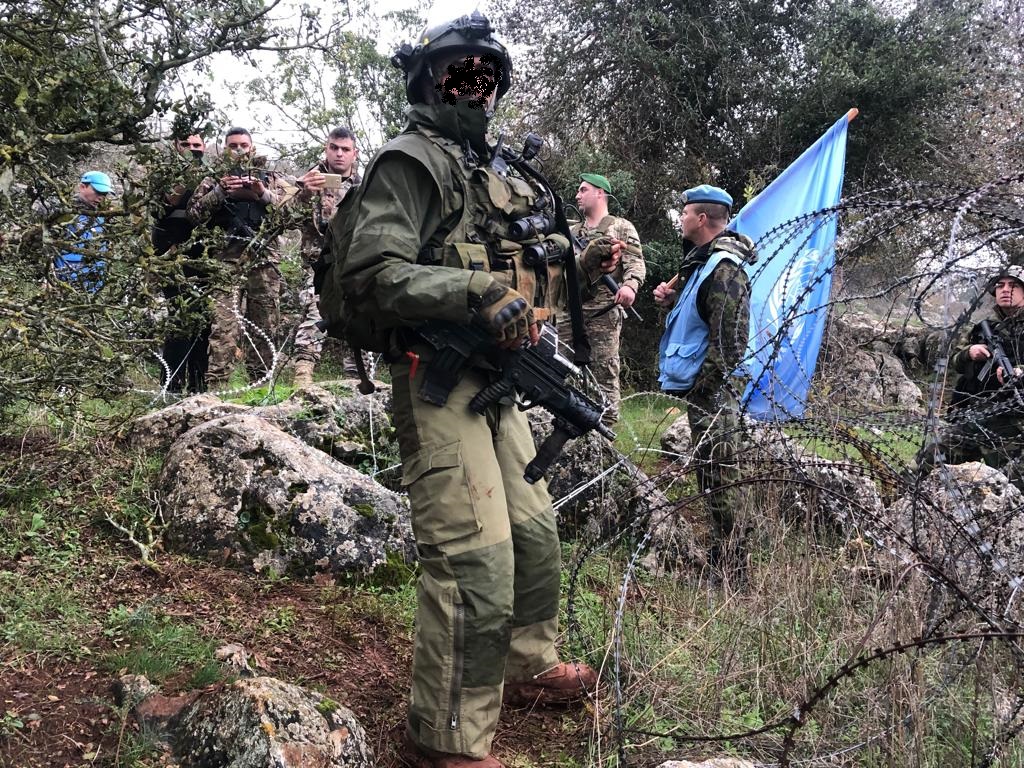
The UN Security Council decision, hardly dramatic or innovative stuff, chose to sidestep UNIFIL’s growing inability to perform its monitoring mission or for preventing freedom of movement of “unauthorized armed personnel, assets, and weapons”, a current UN euphemism for LH military force buildup or operations in the south. A growing threat not only to Israel, UNIFIL forces but to the Lebanese as articulated in the aggressiveness (or a worrying lack of discipline) by LH activists against UNIFIL patrols. Young and military in character they also routinely patrol the BL, disregarding UNIFIL and violating UN infrastructure, creating unnecessary tension while scouting out the terrain and checking the cut lanes that the UNIFIL BL marking procedure has prepared. These to serve as potential attack routes for LH shock troops called RADWAN against Israel[12]. LH secretary general’s, Hassan Nasrallah, disdain and disregard for the force and what it represents was abundantly clear when he publicly took responsibility for an anti-tank missile strike on Israel (2 September 2019)[13] and the rockets shot in last August. The message appears to have circulated and been absorbed, possibly explaining the uptick in local Lebanese assaults on UNIFIL patrols in the last few years[14]. UNIFIL is not deterring anyone in south Lebanon. Conversely, UNIFIL is more intimated.
UNIFIL prides itself as responsible for maintaining the cessation of hostilities since 2006 through tireless monitoring (Land, Air and Maritime execution – LAME). Yet clearly mentioned in routine UNIFIL reporting to the UN Secretary-General and highlighted in the UN review (2020) of UNIFIL reflect an awareness of the forces growing inability to freely traverse all of Southern Lebanon in pursuit of its mission,
“Since 2017, UNIFIL has experienced an increasing number of incidents in which the freedom of movement of its patrols is hindered. Local residents are sometimes fencing off new areas for farming, preventing UNIFIL from gaining access to public spaces that were previously accessible, including close to the Blue Line…In other instances, the population hinders UNIFIL patrols unless they are accompanied by the Lebanese Armed Forces. It is evident that cooperation between UNIFIL and the Lebanese Armed Forces is fundamental to the success of UNIFIL operations and to the safety and security of United Nations peacekeepers. At the same time, the ability of the mission to conduct independent patrols and activities must continue to be a priority in accordance with the mandate of UNIFIL.”
Interestedly, the UN report remarks politely on LAF’s, UNIFIL’s strategic partner, inability (intent or capacity) to enable UNIFIL investigation of specific sites that are more than suspected as being LH military infrastructure on the BL. Sites that clearly are in violation of UNSCR 1701, the very basis of UNIFIL”s mandate to act,
“Of critical importance is the reality that UNIFIL has not been granted access to investigate the sites of serious violations of resolution 1701 (2006), including the cement factory in Kafir Kila, which was proven to be connected to one of the cross Blue Line tunnels discovered by the Israel Defense Forces, and the site of the missile strike of 1 September 2019 claimed by Hizbullah. The ability of UNIFIL to swiftly investigate such incidents constitutes a core part of its mandate and of its efforts to prevent actions by the parties that could undermine the cessation of hostilities. Going forward, the efforts of the Government of Lebanon to provide access without hindrance to all areas that UNIFIL determines to be a mandated priority will remain key to the meaningful implementation of resolution 1701 (2006)”.
Yet remarkably, after such evidence, the report continues to support the present operational concept and the extended configuration of UNIFIL which,
“(is) based on a saturation model, having the highest density of troops and major equipment among all United Nations peacekeeping operations. Its density of troops and its intense patrolling have proved essential to its ability to deter, de-escalate, prevent and deconflict, where and as necessary”[15]
After over 40 years of service and 16 years of unstable stability in southern Lebanon due to mutual deterrence between LH and Israel (not UNIFIL patrolling), with the raising force protection threat to UNIFIL patrols and the emerging need to rebalance UN spending it seems time to reconfigure UNIFIL. A time to scale down and rebalance mission operations from ineffective monitoring (only serving to create a more intimated UNIFIL and emboldening LH)[16] to enable routine preventive communication, focused BL presence in support of boundary stability, and in developing de-escalation capability between the parties in Israel and in Lebanon.
UNIFIL as a supporting element in the current security architecture between Israel and Lebanon is beneficial to both parties because it can freely cross the BL boundary. This affords the UNIFIL Force Commander the routine and unique ability to promote understandings between Lebanese and Israeli leaderships (and especially between the IDF and LAF – and indirectly also with LH) and deconflict potential incidents. This through the UNIFIL liaison and coordination – deconfliction capacity (UNIFIL Liaison Branch), the tripartite forum (held at Naqoura), and the day-to-day BL engagement.
Building trust and access with Israeli and Lebanese leadership is the unique attribute of UNIFIL. One both sides respect. As has been clear in various incidents on the BL including: promoting understanding (even if not agreement) regarding Lebanese so-called BL reservation areas prior to the execution of Israeli Defensive Engineering on the BL which was developed by MG Michael Beary (Ireland, UNFIL FC & HoM, 2016-2018); supporting the maintenance of BL stability while the IDF neutralized the LH attack tunnel threat into Israel (a blatant violation of UNSCR 1701) and in supporting de-escalation of LH and Palestinian HAMAS missile and rocket attacks against Israel in the last few years which was supported by outgoing UNIFIL FC & HoM, MG Stefano Del Col (Italy).
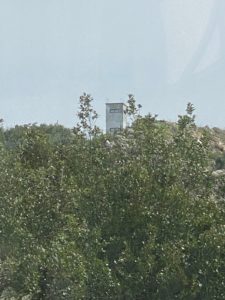
Conversely, UNIFIL is unable to investigate “Green Without Borders” locations which are used as a cover organization for LH surveillance sites against Israel, LH anti-tank missile strike hide sites, or even the “Cement Factory” in Kfar Kila, an entrance to a cross BL LH attack tunnel.
After over forty years of continuous UN effort costing in blood and treasure, the government of Lebanon still lacks the inclination or the capacity to ensure effective authority in Southern Lebanon. Subsequently and unfortunately, UNIFIL’s (temporary) unique contribution to regional stability is still necessary for communication and focused presence. Time to get SLIM. Time to retain what works and scale down to pre-2006 force levels with the tools and lessons learned that UNIFIL brings to the environment.
*Featured image on top from UNIFIL at unifil.unmissions.org.
[1] France24. 28.8.2018. https://www.youtube.com/watch?v=lN0YiubBIS4.
[2] The 2000 internationally recognized demarcation line between Lebanon and Israel. Basically, the current boundary between Israel and Lebanon.
[3] https://www.timesofisrael.com/hezbollah-commandos-video-threatens-israel-warns-of-disaster-from-the-north/
[4] Attributed to General William Slim; Slim in Afrikaans is smart.
[5] Brian Urquhart (1991). A life in peace and war. Pg. 288-289.
[6] The Troop Contributing Countries that have paid the highest price include: Ireland (47); France (39); Fiji (35); Ghana (35); Nepal (30); Norway (21). Additionally, over twenty more countries including Iran (1) have lost servicemen. See, https://peacekeeping.un.org/en/fatalities; UNIFIL Assessment. Report of UN Secretary-General 1.6.2020. S/2020/473. https://undocs.org/en/S/2020/473 (UNIFIL 2020 Assessment); http://unscr.com/en/resolutions/1701. UNSCR 1701. 11.8.2006.
[7] http://unscr.com/en/resolutions/425. UNSCR 425. 19.3.1978; http://unscr.com/en/resolutions/426. UNSCR 426. 19.3.1978.
[8] https://web.archive.org/web/20070310234701/http://www.israel-mfa.gov.il/MFA/Foreign%20Relations/Israels%20Foreign%20Relations%20since%201947/1995-1996/Cease-fire%20understanding%20in%20Lebanon-%20and%20remarks%20b.
[9]UNIFIL 2020 Assessment.
[10] Ibid; UNSCR 2539. 28.8.2020. http://undocs.org/en/S/RES/2539(2020).
[11] UNIFIL is (21.7.2021) composed of a Land component (10,000 apprx), Air Recon & Liaison (one helicopter), Maritime Task Force/MTF (currently 5 Ships – from a ceiling of 18 in 2006) and a civilian support component (557 Lebanese & 241 International staff). UNIFIL assists the Observer Group Lebanon (OGL) a component of UNTSO that has monitored the area since 1948. UNIFIL works in conjunction with UNSCOL (UN Special Coordinator for Lebanon). The UN report raised the issue of efficiency vis-à-vis UNIFIL – UNSCOL and also closing down the Maritime Task Force. See, https://undocs.org/en/S/2021/707.
[12]https://www.timesofisrael.com/hezbollah-commandos-video-threatens-israel-warns-of-disaster-from-the-north/
[13]https://www.timesofisrael.com/hezbollah-chief-says-no-more-red-lines-against-israel/.
[14]UN 2020 UNIFIL Assessment. “UNIFIL perception surveys, conducted annually since 2007, indicate that the population’s recognition of the Lebanese Armed Forces as the sole security provider in the south has significantly improved. Findings in the same surveys show that, since 2017, local residents have been questioning the impartiality of peacekeepers more and more, which negatively affects troop acceptance and results in more frequent restrictions on the movement of UNIFIL troops”.
[15] UNIFIL 2020 Assessment.
[16] ibid. “17. UNIFIL perception surveys, conducted annually since 2007, indicate that the population’s recognition of the Lebanese Armed Forces as the sole security provider in the south has significantly improved. Findings in the same surveys show that, since 2017, local residents have been questioning the impartiality of peacekeepers more and more, which negatively affects troop acceptance and results in more frequent restrictions on the movement of UNIFIL troops”.

